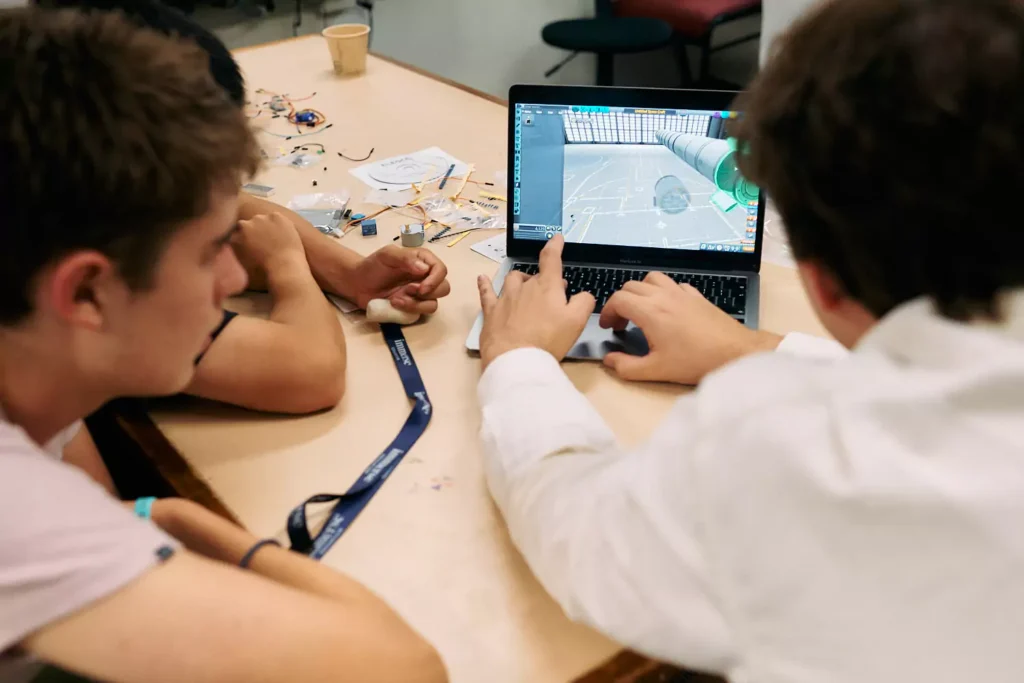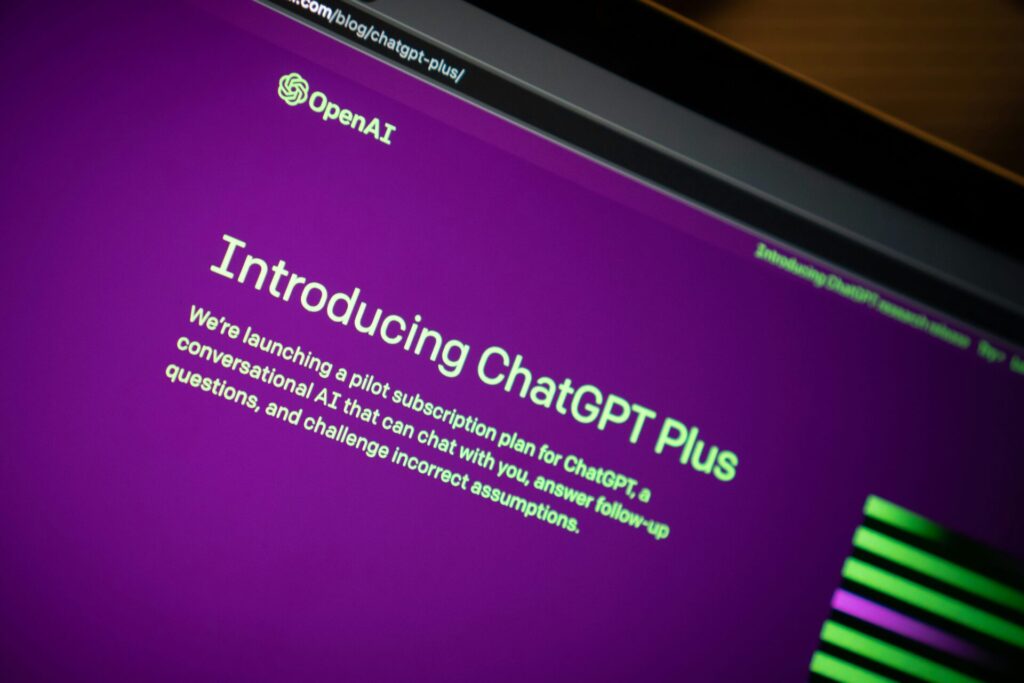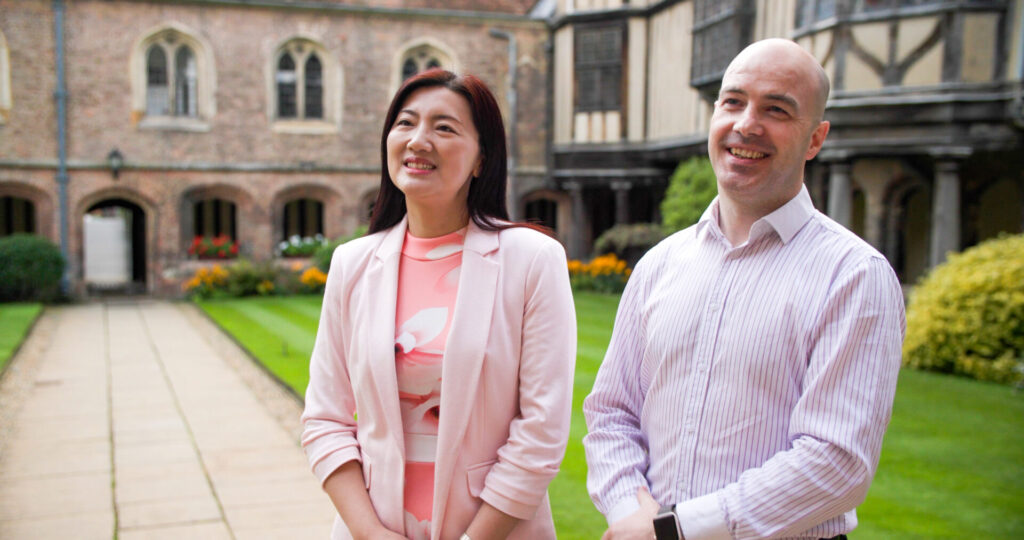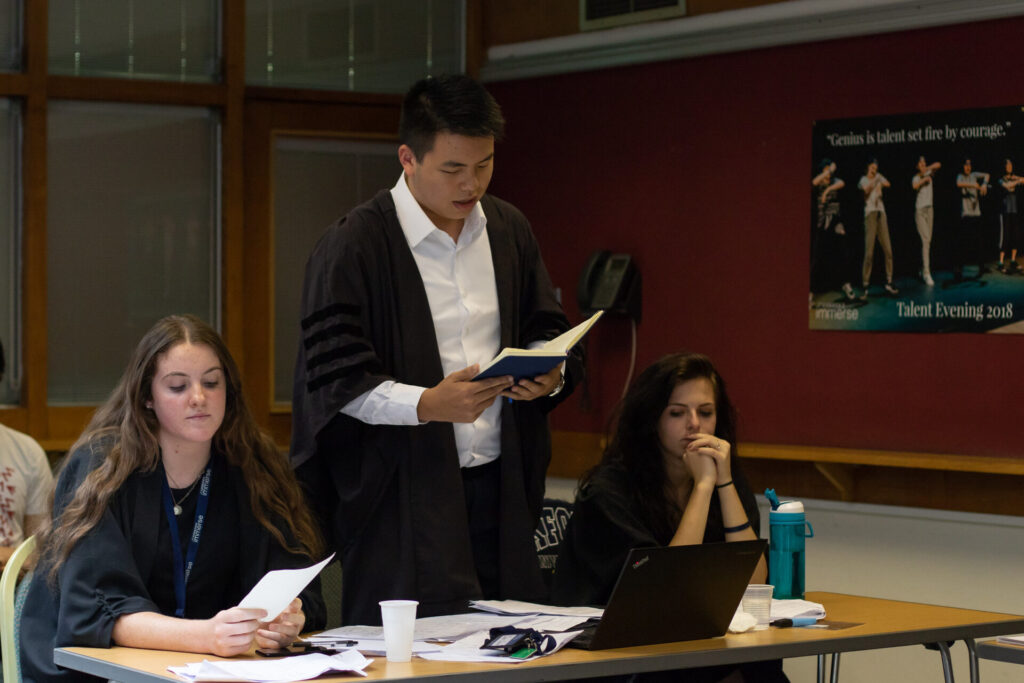Over the past few years, we’ve seen a fundamental shift in how young people learn. Not because of trends or fads – but because the conditions of the world have changed.
Students today are growing up with:
- Global crises that affect their futures directly
- Access to AI tools that answer questions in milliseconds
- Fewer linear pathways to “success”
- More pressure – and more choice – than any generation before
In this new context, traditional classroom learning feels too slow. But fully online learning? Too isolated.
The future of education isn’t digital or in-person. It’s hybrid – and deeply human in its personalisation.
At Immerse Education, we’ve seen this hybrid-human model in action across thousands of students from 120+ countries. What works best isn’t the medium – it’s the mindset. The most powerful learning experiences blend flexibility and structure, content and context, independence and mentorship. Every student benefits from a system that can bend and flex around them.
And if we want to prepare students for a world of uncertainty, we need to build a system that reflects how learning actually happens now.
From control to curation: the student mindset is changing
In the past, education was delivered. Teachers taught, students listened, schools controlled.
But Gen Z (and Gen Alpha) are curators of their own learning. They mix and match podcasts, online courses, competitions, AI tools, YouTube explainers, and in-person programmes to build knowledge.
According to the 2024 Pearson Global Learner Survey, 86% of students say they want to learn about topics that are more relevant to them and their lives, and almost a third disagree that their school makes learning inclusive for all learners.
That’s a fundamental shift. Students are no longer passive recipients – they are taking issue with the content and delivery of their education.
What hybrid learning actually means
Let’s be clear: hybrid education isn’t about putting worksheets online or recording lectures.
Done well, it means combining:
- Anywhere access to foundational content
- Live, human-led sessions for discussion, debate, and mentorship
- Project-based or experiential learning that applies theory to reality
- Ongoing digital reflection tools to help students track their growth
This isn’t just a theoretical model. At Immerse, we’ve begun embedding this approach into our ecosystem. Students on our Succeed platform can explore competitions and resources asynchronously, then attend live feedback sessions or mentorship tutorials to go deeper.
Guest voice: Ben Stacy, Product Lead – Succeed by Immerse Education
At Succeed, we’ve deliberately moved away from the idea that EdTech should be content-first. Our focus has been on building a platform that supports structured, human-led learning, where the value builds on just access, towards active guidance and follow-through.
One of the consistent challenges has been designing for motivation over time. Students will engage with a video or competition once, but that doesn’t mean they’re building habits. We’ve had to build in systems like live masterclasses and goal-setting tools that introduce accountability and reflection without relying entirely on school structures. To ensure that students are engaging with active learning, these features are necessary if you want students to return and make meaningful progress.
Another complexity has been integrating flexibility with clear direction. If a platform feels too open, students lose track of what matters. If it’s too rigid, it feels like schoolwork. Striking the right balance is ongoing, and depends on how we use data, surface next steps, and build in light-touch support.
While my academic work at UCL explored how teachers interact with learning analytics, most of my current thinking is shaped by seeing where our product succeeds and where it doesn’t. The clearest learning has been this: students might start with the platform because of the content, but they stay because of the structure and human connection. Designing for that is difficult but essential.
Why humans still matter more than ever
With the rise of AI and adaptive learning, it’s tempting to think that human educators will become obsolete.
They won’t. In fact, their role is becoming more valuable – but also more specialised.
Students don’t just need content. They need:
- Encouragement when they feel stuck
- Honest feedback on how they come across
- Nuanced questions that challenge their assumptions
- A sense of being seen, believed in, and supported
These are all deeply human contributions. And they’re what make learning transformative, not just efficient. At Immerse, we believe that AI can tell a student if their argument is well-structured. Only a a mentor can tell them if it’s meaningful.
Join the Immerse Education 2025 Essay Competition
Follow the instructions to write and submit your best essay for a chance to be awarded a 100% scholarship.

Universities and employers are catching on
Leading universities are already moving toward hybrid-human models. Oxford’s Blavatnik School of Government, for example, offers courses that blend asynchronous content with live academic seminars. Harvard’s edX initiative continues to evolve toward high-impact online learning paired with real-world application.
And top employers? They care less about how someone learned – and more about what they can do and how they show up.
A 2025 IBM SkillsBuild Education Forecast found that 87% of executives expect jobs to be augmented by AI, with about half indicating that employees will need stronger skills in learning agility, communication, and collaboration to succeed as organizations adapt to these changes.
Hybrid education doesn’t just deliver content. It builds the competencies of the future.
What this means for parents, schools, and educators
This shift has real implications. Here’s how we should be responding:
- Parents: Look for programmes that develop skills and self-awareness. Ask not just “what will they learn?” but “how will they grow?”
- Schools: Partner with platforms that provide meaningful hybrid enrichment – not just digital worksheets.
- Educators: Focus on becoming guides, not gatekeepers. Let tech take the repetition – focus on depth, conversation, and mentorship.
And for students? The message is clear:
You are the architect of your own education. And the best architects use every tool available – but always build for humans.
Final thought: hybrid isn’t a compromise. It’s a multiplier.
We used to think online learning was a downgrade. But now we know: when thoughtfully designed, it can enhance – not replace – the human experience of learning.
The future of education will be powered by AI, delivered through platforms, shaped by students – but always anchored in human connection. That’s where the real transformation happens.
Explore how Immerse Education blends hybrid learning with world-class mentorship. Visit immerse.education to learn more about our programmes and student platform, Succeed.


























